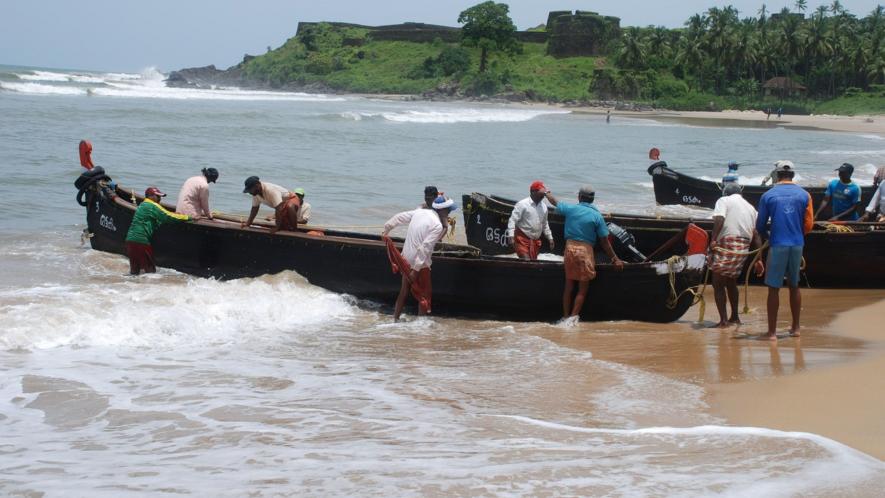West Bengal: Govt Moots New Pond Policy at the Cost of Fisherfolks

Representational Image. Image Courtesy: Needpix.com
Kolkata: In a bizarre move, the West Bengal government has decided to adopt a pond policy to bring all waterbodies in the state under a single roof to enable the hiving of the water bodies to private entities for profit.
All India Fisheries and Fisheries' Workers Federation (AIFFWF) strongly criticised the move; the union said that it dealt a cruel blow to over 37 lakh fisherfolks of the state as they depend on the waterbodies for their livelihood.
To protest the move, the AIFFWF West Bengal unit has declared a series of programmes in all 22 districts of the state.
"In every district, we will organise mass protests, deputations and dharnas," said Debasish Barman, secretary of the AIFFWF West Bengal unit.
The union will organise a mass convention on December 11 at Hare Krishna Konar Smriti Bhawan in Kolkata. Following that, there will be a central meeting of the fisherfolks on January 19 in Kolkata.
As per sources, over 37 lakh pisciculturists depend on water bodies, such as marshy areas, ponds, canals, small rivers and rivulets, spread across 1 lakh acres. Water bodies have been under the supervision of various departments, such as the Fisheries, Public Works, Agriculture, and Forest departments.
In the new move, the state government has formed a three-member ministerial group to oversee the formation of a single entity to hold the ownership of the water bodies.
If the plan succeeds, even the food chain of the people of West Bengal, dependent on fish as a source of cheap protest, may get jeopardised. Likely, the cost of fish may dramatically increase.
As per the noise coming out of official quarters, the formation of a single entity to oversee water bodies will be followed by the setting up a portal, which the real estate agents can easily access to use water bodies for tourism, construction and other activities.
The decision to bring all the water bodies under one entity was taken months ago at a meeting chaired by the chief minister Mamata Banerjee. However, no progress was made. To rectify that, the CM formed the three-member ministerial group, which includes the Agriculture minister Sobhandeb Chaterjee, Panchayat and Rural Development minister Pradip Majumdar and Water Resources minister Manas Bhuniya.
Presently, the water bodies have been given on lease to gram panchayats, panchayat samitis and zila parishads, which augment their income.
This system is set to change; people fear that the new move will lead to the corporatisation of the water bodies.
The work on the pond survey has already been completed. The survey discovered 2,500 water bodies in West Bengal, larger than five acres. At the same time, there are 75,000 acres of water bodies, individually under five acres each. The survey found that of these 75,000 acres, around 50,000 acres of water bodies have not been leased out. These water bodies are used by informal pisciculturists who use them to catch fish.
It can be recalled that the use the government lands, the state government changed the leasehold lands to freehold lands. It also created an online portal for real estate companies to access these lands. With the new pond policy, water bodies may similarly get hived off after the government makes them freehold.
There are over 1,200 fishers' cooperatives in the state; moreover, there are over 3,500 fishers' groups centred around water bodies on a hereditary basis. The new policy may lead to the complete devastation of all these fisherfolks.
As per Barman, the corporatisation will hit the fishers the hardest.
"This will hit the people of Sundarbans, where more than four million people directly or indirectly depend on the water economy. The affected persons in this regressive decision will be from SC (scheduled caste), ST (scheduled tribes) and minority communities. To protest this, the fisherfolks will organise gate meetings, mohalla meetings and conventions from November 15-30."
Get the latest reports & analysis with people's perspective on Protests, movements & deep analytical videos, discussions of the current affairs in your Telegram app. Subscribe to NewsClick's Telegram channel & get Real-Time updates on stories, as they get published on our website.
























